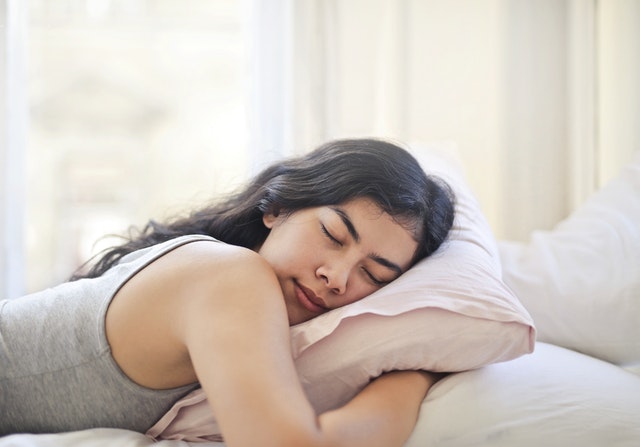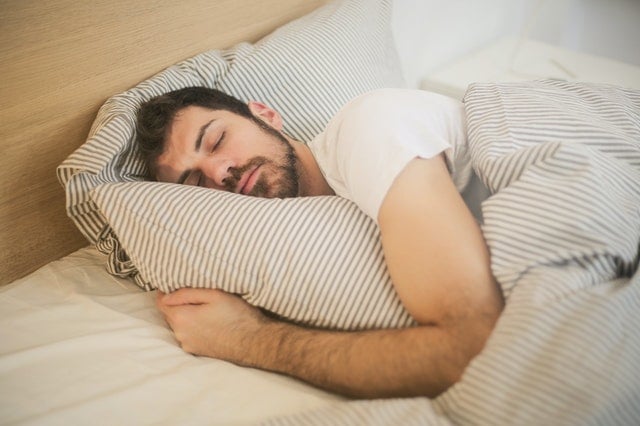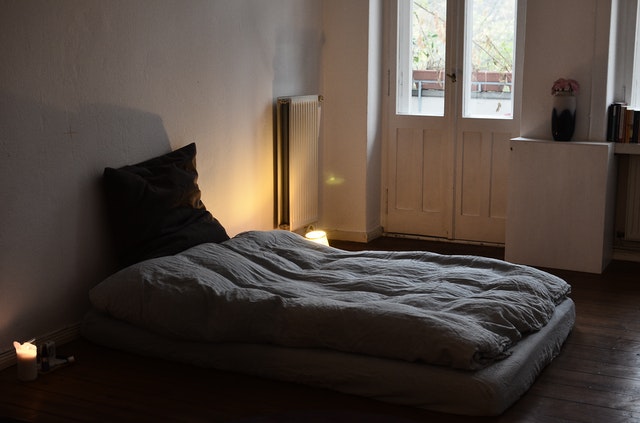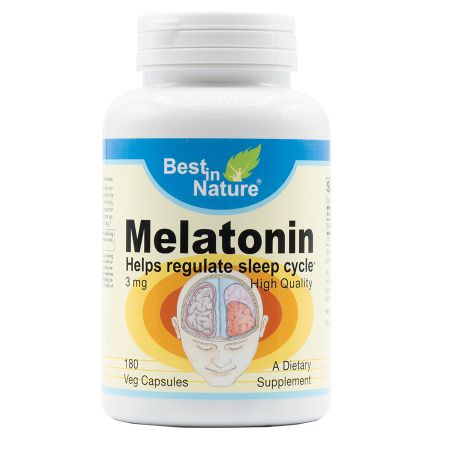
6 min read
You shouldn’t be too surprised to read that sleep is a critical component of maintaining good health and ensuring you have enough energy to make it through your day. However, you may not realize just how important getting enough quality sleep really is. This is a problem, especially since the Center for Disease Control and Prevention (CDC) has reported that more than 33% of adults in America don’t get enough sleep regularly. If you’re wondering whether or not you’re sleeping enough and what it might be doing to your health, don’t worry! We've put together this short explainer with the essential information on how much sleep you need and how to recognize if you're not getting enough and finally a few helpful tips if you find it difficult to fall asleep. And for additional info on how to better support your mind and body, please consider exploring our range of expertly written educational resources.

[Related: How to Take Probiotics Properly]
The Importance of Sleep
Sleep is an essential element of life, much like food and water. But while it serves as a time for your body and mind to rest, the truth is that your body is still active during the night as it works to rebuild muscles, remove toxins, and solidify your memories. Sleep is also essential for promoting emotional regulation. In fact, being sleep-deprived for only a single night can increase your negative emotions and emotional responses by as much as 60%. Sleep deprivation can also negatively impact other essential functions, including the immune system, appetite control, metabolism, body weight, and elements like cognitive performance, decision-making, creativity, and productivity.
How Much Sleep Is Recommended For Each Age Group?
Every individual has unique preferences and needs regarding their sleep requirements, but the amount of sleep your body requires is primarily determined based on age. The official recommendations for sleep durations of different age groups from youngest to oldest are;
- Newborns (0-3 months old): 14-17 hours per day
- Infants (4-12 months old): 12-15 hours per day (naps included)
- Toddlers (1-2 years old): 11-14 hours (naps included)
- Preschoolers (3-5 years old): 10-13 hours per day (naps included)
- School kids (6-13 years old): 9-11 hours per day
- Teenagers 14-17 years old): 8-10 hours per day
- Adults (18-64 years old): 7-9 hours per day
- Older adults (65+): 7-8 hours per day
Both the American Academy of Sleep Medicine (AASM) and the Sleep Research Society (SRS) also recommend that adults between the ages of 18 to 60 years old should get at least seven hours of sleep every night. Doing so helps promote optimal health and well-being and allows people to better prevent a range of problematic health risks from sleep deprivation.

Related: 15 Herbs Beneficial To Your Immune System
Common Signs you Aren't Getting Enough Sleep
If you’re not getting enough sleep, you’ll likely see a wide range of changes in your mood and behavior, as well as your mental and physical abilities during the day. Some of the most common signs that you're not getting enough sleep include;
1. Trouble focusing
A lack of sleep can make it very difficult to be productive and get things done because it hinders your ability to focus on tasks for even short periods, let alone extended periods.
2. Feeling tired or falling asleep throughout the day
Feeling extremely tired and nodding off throughout the day is one of the most apparent signs that you didn’t get nearly as much sleep as you should have the night before. While you’re more likely to experience this during calm activities like sitting down and watching a movie, it can also occur while driving, which is extremely dangerous.
3. Having a hard time getting out of bed
If you find yourself struggling to get yourself out of bed in the mornings, it may not be just because you’re warm and comfortable and want to remain in a cocoon of blankets. It could also signify that you didn’t get enough sleep to start the day.
4. Mood changes
As noted above, sleep deprivation severely impacts mood and emotions. If you find yourself more irritable or just more emotional overall, it’s a likely indication that you’re not giving your brain or body the sleep it needs to function.
5. Forgetfulness
When you don’t sleep enough, not only is it easy to become more forgetful during the day, but your brain also can’t effectively solidify your memories at night.
Are you struggling in a battle against the problematic effects of insomnia and need a quality solution to help you obtain a decent night’s sleep? Please explore our range of expertly crafted sleep aids at Best in Nature to help get your nighttime schedule back on track so you can enjoy more energy and strength during the day!
Tips for Better Sleep

Getting enough sleep is essential, but it’s also essential to make sure the rest you’re getting is of decent quality. While getting quality sleep can sometimes be difficult, there are several things you can do to help improve your chances of getting a good night’s rest. Five of the best things you can do for yourself include;
1. Following a regular sleep schedule
Going to bed and waking up at the same time every day can help better regulate your body’s internal clock, making it much easier to sleep while also improving your overall sleep quality.
2. Minimizing caffeine, alcohol, and nicotine consumption
Studies have linked all of these substances to poor sleep quality, so it’s better to avoid them to help ensure a more restful night’s sleep- especially in the afternoons and evenings.
3. Reducing the use of technology before bed
The use of cell phones and other types of electronics is strongly associated with poor sleep quality, so it’s generally a good idea to stop using your devices at least 30 minutes to an hour before going to bed.
4. Creating a comfortable environment
Getting enough sleep can be difficult, and ensuring that the rest you get is of decent quality can be even more challenging. But setting up a comfortable, sleep-promoting environment can help! Try making sure your room is dark, quiet, and set at a comfortable temperature (usually between 65 and 72 degrees Fahrenheit).
5. Getting active
Scientific studies have indicated that being inactive can lead to poorer sleep quality. Take time out of your daily schedule (preferably in the morning or afternoon) to get some exercise so you’ll have an easier time sleeping at night.

Related: Can a Glass of Red Wine a Day Keep the Doctor Away?: 10 Benefits of Drinking Red Wine
The Bottomline: Sleep Matters, so Stick to a Healthy Sleep Schedule
Now that you know how long you should be sleeping at night to promote optimal health and have a few tips and tricks that can help you establish a better sleep schedule, you can begin taking some additional steps to ensure you’re getting the rest you need! Even with the above advice, sometimes sleeping is just hard to do.
It’s essential to get enough quality rest so you can function correctly and have enough energy to get through the day without struggling against the weight of fatigue and heavy eyelids. If you're looking for a bit of short-term assistance, shop our sleep category within the Best in Nature Store.
© 2022 Best in Nature All rights reserved






Validate your login
Sign In
Create New Account